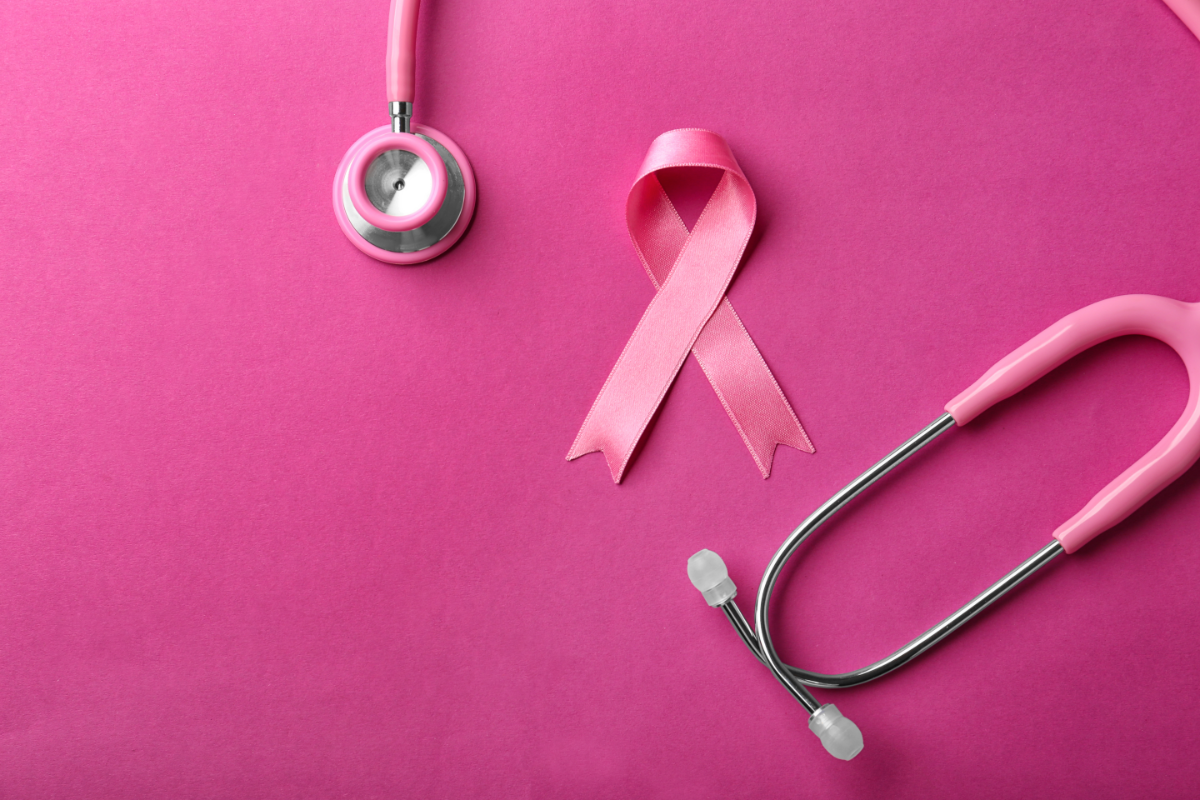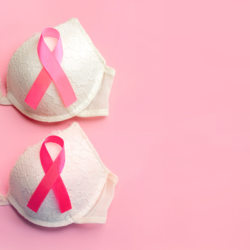Breast cancer is the most common cancer in women. In France, the incidence remains particularly high, with 105.4 cases per 100,000 people according to the WHO in 2022. However, the mortality rate remains relatively low (15.8 deaths per 100,000 population), thanks to medical advances, early detection and easier access to care.
Nevertheless, the disease and its treatment can lead to physical and psychological changes that can affect body image and self-esteem. This article explores ways of coping with these changes and maintaining a healthy relationship with your body.
Understanding breast cancer
Breast cancer can cause a number of physical side-effects, particularly following surgery such as a mastectomy. These operations, although necessary to eliminate the cancer cells, can complicate your relationship with your body.
Managing hair loss
Hair loss is a potential side effect of treatment. For some people, hair is an integral part of their identity. One innovative option is scalp cooling, although this method can represent an additional cost. Some head accessories such as scarves or hats. Explore the different wig styles if this suits you.
Practical tip: Consider gentle scalp treatments such as natural plant oils or massages.
The challenges of fatigue and weight gain
Fatigue and pain are among the most commonly reported side effects of breast cancer treatment. These symptoms can have an impact on your level of physical activity, which can lead to weight gain. So it’s essential to review your eating habits and lifestyle.
The impact of exercise on breast cancer-related fatigue has been studied in several research studies. A study published in the Journal of Clinical Oncology showed that even modest levels of regular physical activity can significantly improve energy levels in breast cancer patients (Smith et al., 2013).
Practical tip: Incorporate small exercise routines, such as daily walks or gentle yoga, to maintain physical activity. Tailor your diet with nutrient-rich, low-calorie foods to manage weight gain.
Physical activity and psychological well-being
Although exercise may seem counter-intuitive when you’re feeling tired, studies show that even modest regular physical activity can actually help improve energy levels. Exercises such as walking or yoga can be particularly beneficial.
Practical tip: Meditation and guided relaxation can be good tools for managing stress and anxiety. Joining support groups or online forums can also provide emotional support and practical advice.
The role of a balanced diet
A diet rich in essential nutrients can play a major role in combating fatigue. Fruit and vegetables are invaluable sources of vitamins, minerals and antioxidants that can improve general well-being and potentially reduce the effects of fatigue. Fruit and vegetables are essential sources of vitamins, minerals and antioxidants. According to a study by theAmerican Cancer Society, a diet rich in these elements can help improve general well-being and reduce the effects of fatigue in cancer patients (Jones et al., 2013).
Practical tip: Increase your intake of fresh fruit and vegetables, wholegrain cereals and lean protein. Try to avoid processed foods high in saturated fats.
Food supplements: an option worth exploring
In some cases, dietary intake alone may not be enough. In these cases, food supplements may be an option to explore. For example, omega-3 supplements can help regulate inflammation, while certain forms of magnesium can help improve sleep quality. It is important to consult a healthcare professional for advice tailored to your situation.
Origin and presence of trans fats
Trans fats are found mainly in processed foods ( packaged snacks, margarines, prepared fried foods). They are often used because they extend the shelf life of products and improve their texture. However, these fats have a cost to your health that can be particularly harmful during a period when your body is already under extreme stress, such as during cancer treatment. So read food labels carefully to look out for terms such as ‘hydrogenated’ or ‘partially hydrogenated’ (presence of trans fats).
Impact on inflammation and fatigue
Trans fats are known to increase inflammation levels in the body. Inflammation is a natural biological response, but when it is chronic, it can lead to a whole range of health problems. In particular, an inflammatory state can worsen symptoms of fatigue, which are already commonly seen in breast cancer treatments.
Food alternatives
Opting for foods rich in unsaturated fats, such as oily fish, nuts and seeds, may be a better option. These types of fat can actually help to reduce inflammation. If cooking with fat is necessary, healthier oils such as olive oil or canola oil are preferable.
In the inflammatory context of breast cancer
Inflammation is a complex biological phenomenon that plays an ambiguous role in cancer. Although it is necessary for fighting infections and healing wounds, chronic inflammation can also exacerbate serious medical conditions such as breast cancer. Against this backdrop, more and more attention is being paid to anti-inflammatory agents, including dietary supplements.
Curcumin: a rising star
One of the dietary supplements that has attracted a lot of attention in the anti-inflammatory field is curcumin. This bioactive compound, extracted from turmeric, has demonstrated anti-inflammatory properties. It appears to modulate various cell signalling pathways involved in inflammation, offering a multi-target action.
Precautions and drug interactions
It is imperative to consult a health professional before incorporating anti-inflammatory food supplements into your diet. This is especially crucial if you are undergoing medical treatment for breast cancer, as supplements can interact with drugs and alter their effectiveness. What’s more, the dosage and quality of the supplement can vary considerably, requiring a personalised approach.
Other anti-inflammatory supplements to consider
In addition to curcumin, other food supplements such as omega-3-rich fish oil, resveratrol found in red grapes, or even the flavonoids in green tea have also shown anti-inflammatory potential. These options could be considered as part of an integrative care plan, always in consultation with your healthcare team.
Omega-3s, known for their anti-inflammatory properties, may be beneficial in breast cancer treatment. A publication in the Journal of Nutritional Biochemistry assessed their impact on inflammation and patients’ quality of life (Study 2019). Similarly, magnesium, to improve sleep quality, has been studied in the context of the well-being of cancer patients, as reported in a study in the Journal of Research in Medical Sciences (Study 2022)
Practical tip: Before taking any supplements, always consult a health professional. If validated, incorporate them gradually into your diet, following the dosage recommendations.
During and after treatment
After surgery such as a mastectomy, it’s crucial to come to terms with your new body. Breast reconstruction may be considered, although the result is different from natural breasts. Psychosocial support, such as counselling, can be beneficial in dealing with concerns about body image.
Improving breast cancer care (law passed on 28 January 2025)
- A package for care products: Moisturising creams and nail varnish to prevent nail loss will now be reimbursed.
- Funding for complementary care: Psychological support, nutrition and physical activity will be covered.
- A framework for excess fees: Surgeons performing breast reconstruction will be required to comply with a framework for fees.
Hormonal and physiological challenges
Breast cancer treatments, particularly chemotherapy and hormone therapy, can cause a series of side effects that affect sexuality and intimacy. Symptoms such as vaginal dryness, reduced libido and even pain during intercourse are frequently reported. These physiological changes can, in turn, have a considerable impact on self-esteem and emotional well-being. Open and honest communication with your partner is of crucial importance in this context.
FAQ
Q : What are the main symptoms of breast cancer?
A : Common symptoms include a lump in the breast, changes in the size or shape of the breast, and skin abnormalities around the nipple.
Q : Is breast cancer hereditary?
R : Although a family history can increase the risk, the majority of cases of breast cancer are not directly linked to hereditary factors.
Q : What treatment options are available?
A: Options vary according to the stage and type of cancer, but may include surgery, chemotherapy, radiotherapy and hormonal treatments.
Q : Is hair loss inevitable during chemotherapy?
A : Hair loss is not universal and depends on the type and dose of chemotherapy used. There are also options to minimise this loss, such as cooling the scalp.
Q: Is it possible to maintain an active sex life during treatment?
A: The side effects of treatment can affect sexuality, but open communication with your partner and medical team can help to identify suitable solutions.
Q : Can food supplements help during treatment?
A : Some supplements, such as curcumin, have anti-inflammatory properties. However, always consult a healthcare professional before starting any supplements.
We invite you to share your experiences, advice and questions in the comments below. Your voice is important to our community. Please also feel free to share this article on your social networks to help raise awareness and inform others about these crucial issues.
Do you have a question that isn’t covered here? Write it down in the comments, and we’ll do our best to provide you with useful and up-to-date information.





